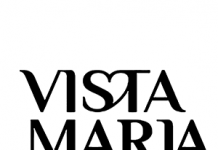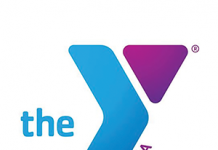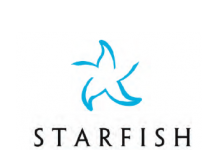 When Ebtisam Abdulhussain arrived with her family in metro Detroit in 2010, she had lost five of her seven children to an explosion in her home country of Iraq. Less than three years later, her husband fell ill and died, too. Abdulhussain was traumatized, had little command of English, and had two teenage sons to support.
When Ebtisam Abdulhussain arrived with her family in metro Detroit in 2010, she had lost five of her seven children to an explosion in her home country of Iraq. Less than three years later, her husband fell ill and died, too. Abdulhussain was traumatized, had little command of English, and had two teenage sons to support.
Today, the 51-year-old former civil engineer is a U.S. citizen. Her older son is studying biomedical engineering at the University of Michigan; her younger son volunteers with her at Zaman International, a nonprofit organization in Inkster that provides help meeting basic needs to women and children in poverty and to refugees and immigrants.
Zaman helped Abdulhussain after her husband’s death, and today she is committed to helping others. “I called the Zaman office and asked if I could talk with (Zaman founder) Najah (Bazzy),” Abdulhussain says. “She tell me, ‘Zaman is open for you and your family.’
“It’s hard for me when I lost my five kids and then I came here — I don’t know everything about this country; it’s a new life for me,” she adds. “Zaman was very supportive of me. Najah also encouraged me … (and said) I have to be strong. Because right now I am father and mother at the same time for the two boys.”
Zaman is one of many local nonprofits that helps the region’s new arrivals integrate. Many of those individuals are similar to Abdulhussain — well educated people who have experienced trauma and loss but who, with the right support, become productive contributors to the metro Detroit community and beyond.
“When we watch mass media, particularly with the fact that we’re seeing the world’s largest number of displaced persons since World War II, particularly from the Middle East and Africa, you have these images that don’t line up with reality or the experiences that we have in metro Detroit,” says Steve Tobocman, director at Global Detroit, a nonprofit committed to revitalizing Michigan’s economy by making the region more attractive and welcoming to immigrants and foreign investment. “The reality is we have about 400,000 foreign-born people in the metro Detroit area. They are often very highly educated and can be very successful.
“At the same time, there are some that come with limited education and limited language skills and can struggle.”
In fact, immigrants in metro Detroit are twice as likely as U.S.-born residents to have a graduate degree. Nationwide, immigrants are also twice as likely than the native population to start a new business. According to “The Contributions of New Americans in Michigan,” a report released in August by the bipartisan Partnership for a New American Economy, immigrant-owned businesses generated more than $608 million in 2014, and nearly 153,000 people were employed by immigrant-owned firms in 2007.
But in order to achieve that level of integration and success, many new arrivals need support. And that’s where local nonprofits step in.
Many of metro Detroit’s immigrants and refugees hail from the world’s most troubled regions, especially the Middle East, Central America, and sub-Saharan Africa. Many have survived violence, persecution, and the loss of close family members.

“Ninety percent of the refugees we see are also victims of torture,” says Mona Makki, director of the community health and research center at the Arab Community Center for Economic and Social Services (ACCESS) in Dearborn. “Each person presents with a different story. They talk about beatings, electrocution, watching family members get executed in front of them.”
ACCESS was founded in 1971 to help Arab immigrants adapt to life in the United States. Today, the organization offers a host of services to the broader immigrant and refugee community, including English classes, job training, translation assistance, financial literacy, and more. Its Psychosocial Rehabilitation Center, which opened in 2000, focuses on providing medical and psychological treatment to victims of torture, serving about 300 clients annually.
“The center views torture as a social and political instrument that strips people of their voice,” Makki says. “When they come to us, they have a wide range of needs — post-traumatic stress disorder, anxiety, depression. A lot of asylum-seekers don’t have access to financial support, which exacerbates a lot of the issues. And coming to this country, they have limited access to services.”
Freedom House, a nonprofit located in southwest Detroit that provides comprehensive services to asylum-seekers and victims of human trafficking, partners with ACCESS to provide about 150 residents of its shelter with treatment each year. It’s vital that torture survivors receive care from professionals trained to recognize the mental and physical symptoms, says Deborah Drennan, Freedom House’s ex-officio executive director.
“There’s so much shame; there are so many aspects of fear and anger and guilt,” she says. “It takes time to disclose the reality because they have to build up a lot of trust. And there’s cultural shame around someone who may have a sexually transmitted infection (resulting from sexual assault). They need someone to really understand how that affects them.”
As residents are treated at ACCESS, Drennan says, the impact of the care becomes apparent.
“First, they can look you in the eye,” she says. “Their head isn’t down, their shoulders are no longer hunched in. During house meetings and social events, you see them engaging and smiling more. They become more concerned about other residents at the house. And their English improves, if they’re not English speakers. They sleep better, too.”
“We’ve been treating this population for over 15 years now,” Makki says. “The goal is to help heal the wounds and help them achieve acculturation and integration into this new community. We do believe with proper support services, they do integrate back into society.”
At Zaman, though the focus is on helping with basic needs rather than medical and psychological care, the impact of trauma on clients still needs to be addressed.
“A lot of these (refugee) families, they lived stable lives before,” says Bazzy, Zaman’s founder. “These are real war refugees; these people have lost everything. They need to feel hope, they need to feel welcomed, and they need to know this is an opportunity. And I think the public needs to know their loss. I don’t think there’s a refugee family that hasn’t lost a relative, one or more, in very traumatic circumstances.”
Bazzy founded Zaman in the late ’90s, when she was working as a nurse. She encountered refugee families whose babies had died and who couldn’t afford a burial. The families were often forced to cremate their infants because cremation is much cheaper, further traumatizing them. Bazzy created Plots for Tots, which raised money to bury infants from poverty-stricken families. Eventually, Bazzy’s work with those families expanded, and she began raising money to provide them with food, clothing, and shelter. (Plots for Tots remains a core Zaman program. In 2008, the organization bought cemetery land, and it has helped bury 50 babies since 2009.)
Today, Zaman’s chief focus is women and children in poverty. But it still provides extensive programming specific to refugees and immigrants from its 40,000-square-foot Hope for Humanity Center in Inkster. The organization offers English language education, vocational training in sewing, and entrepreneurship through its Boost program. In addition, clients can also obtain food, clothing, shelter, furniture, and other basic needs.

“Initially we started in refugee resettlement, so our focus was the whole family, but as resource allocation became an issue and we saw the abandonment of women or domestic violence — at some point, you have to make those decisions,” Bazzy says of Zaman’s decision to prioritize helping single mothers. “If she falls down, what’s going to happen to those kids? If we can sustain her or bypass the poverty she’s in by giving her food, giving her clothing, helping her when she doesn’t know what to do and not send her someplace else when she’s in crisis — if we can stabilize her, then her children have a chance. So our goals changed. We wanted to take care of the most marginalized.”
Clients can join mental wellness workshops or field trips to the library and to local shops; Zaman also works to partner with organizations to provide educational opportunities for clients’ children. The organization is awaiting a pending grant to provide drivers training; Bazzy says transportation is a key area of need for new arrivals. As its programming expands, so does the number of clients it serves — Zaman served 223 families in the first six months of this year, a 37 percent increase over the same period in 2015.
In her volunteer work with Zaman, Abdulhussain provides help with Arabic translation, assists clients who need food and clothing, and makes home visits with the social worker to assess needs. Being able to help women who come from circumstances like her own is very meaningful for her, she says.
“There was a woman from Yemen whose husband died,” Abdulhussain says. “She’s young, she has three kids, ages four to eight years old. She contacted us. She’s very shy. So I told her, ‘you have to tell us what you need.’ She didn’t say anything. We visit her and see the house. She needs everything. We gave her new furniture. Then I told her about the Boost program. She came to learn English language and sewing. It’s so nice — now she can support herself because she’s doing sewing. Every time I see her, it’s so happy. When I met her for the first time, she was like me.”
Bazzy says that Zaman’s work providing for basic needs is vital, but its real service to its clients comes from helping them imagine a better future for themselves and their children.
“I think we provide hope,” Bazzy says. “I know that’s an intangible, but I can’t tell you how powerful that intangible is. That’s what I think we’re best at doing.”
Ã˝
|
| Ã˝ |
|








